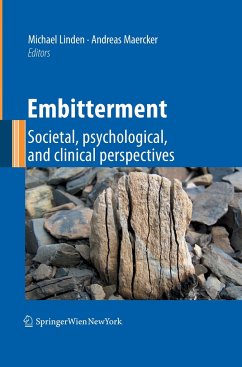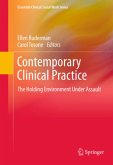Embitterment is a distinct state of mood known to everyone. It can be seen in the context of exceptional though "normal" negative life events. It is an emotional reaction e.g. to humiliation, to being severely disappointed by others, or to violations of basic values. Embitterment is accompanied by other emotions like feelings of hopelessness and helplessness, poor moods and a lack of drive, and aggression towards oneself and others. It can end in suicide or even murder-suicide and in a distinct pathological state known as "Posttraumatic Embitterment Disorder (PTED)". But despite the high prevalence rates, the detrimental effects on individuals and its forensic and societal importance, embitterment has yet to receive due scientific attention.
In this book pioneers in embitterment research summarize the current knowledge on embitterment, its triggers, phenomenology and consequences. The work is intended to stimulate international debate and to contribute to a better understandingof embitterment and a deeper appreciation of the impact of exceptional but normal negative life events on psychological well-being.
In this book pioneers in embitterment research summarize the current knowledge on embitterment, its triggers, phenomenology and consequences. The work is intended to stimulate international debate and to contribute to a better understandingof embitterment and a deeper appreciation of the impact of exceptional but normal negative life events on psychological well-being.








